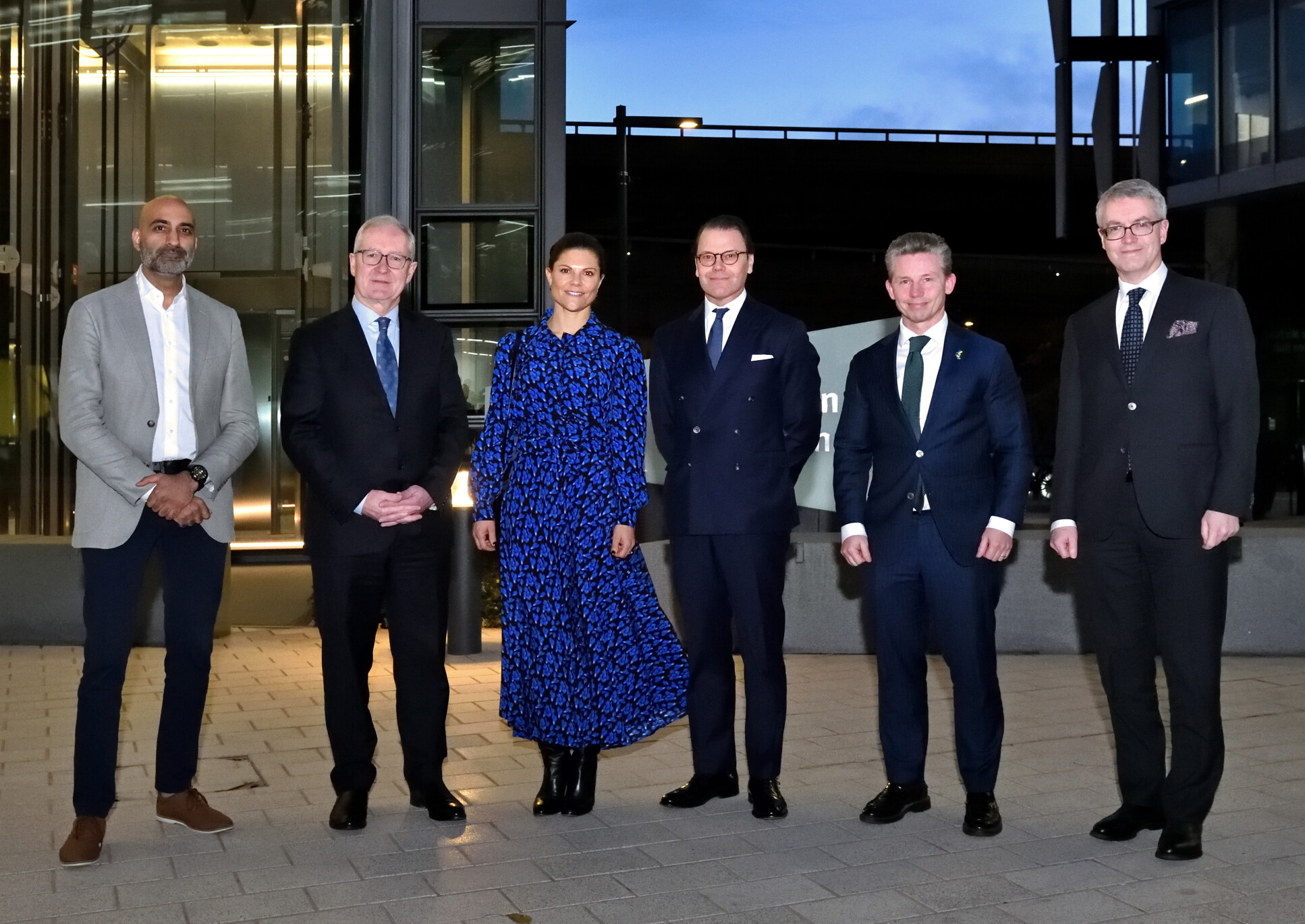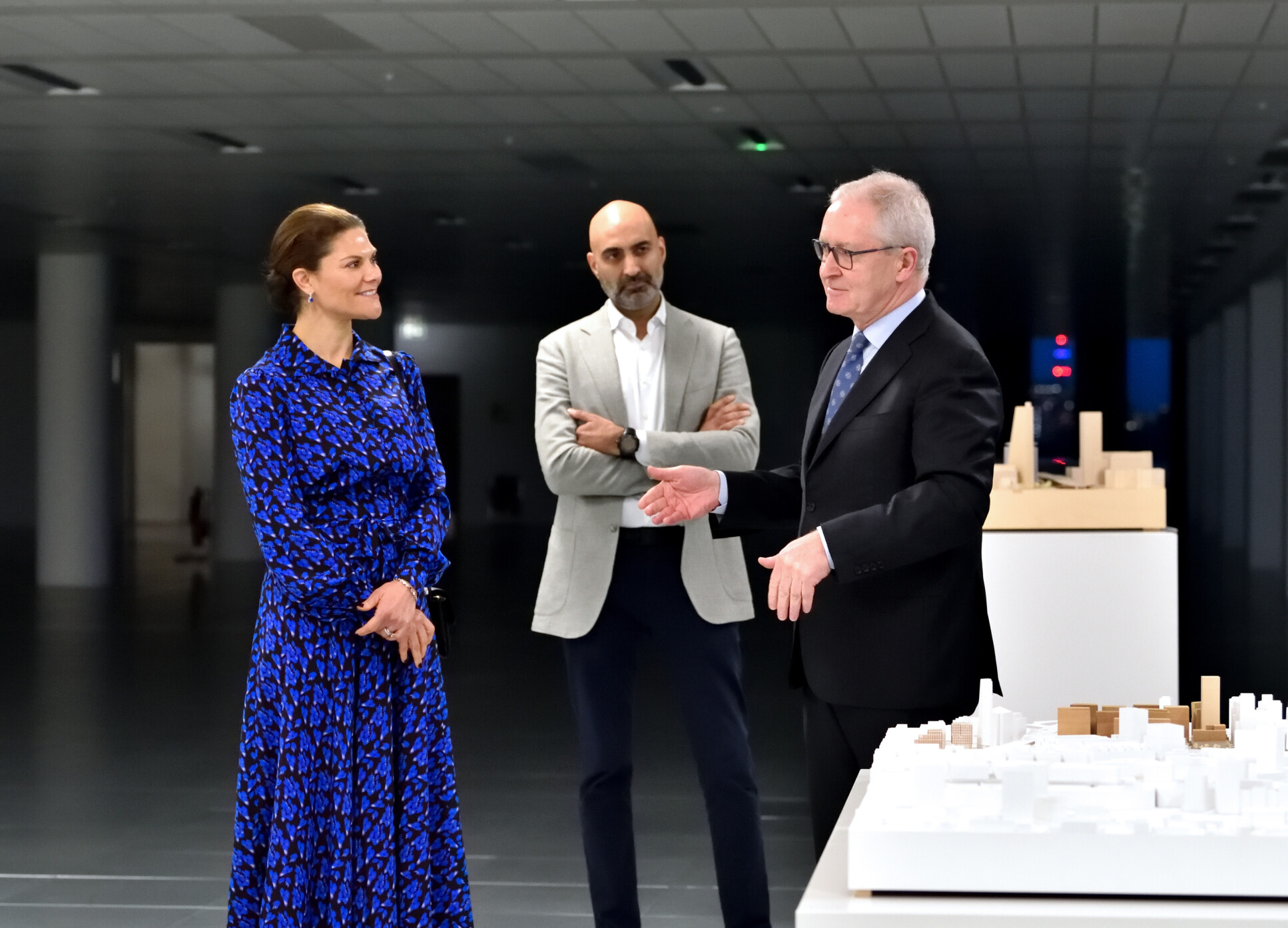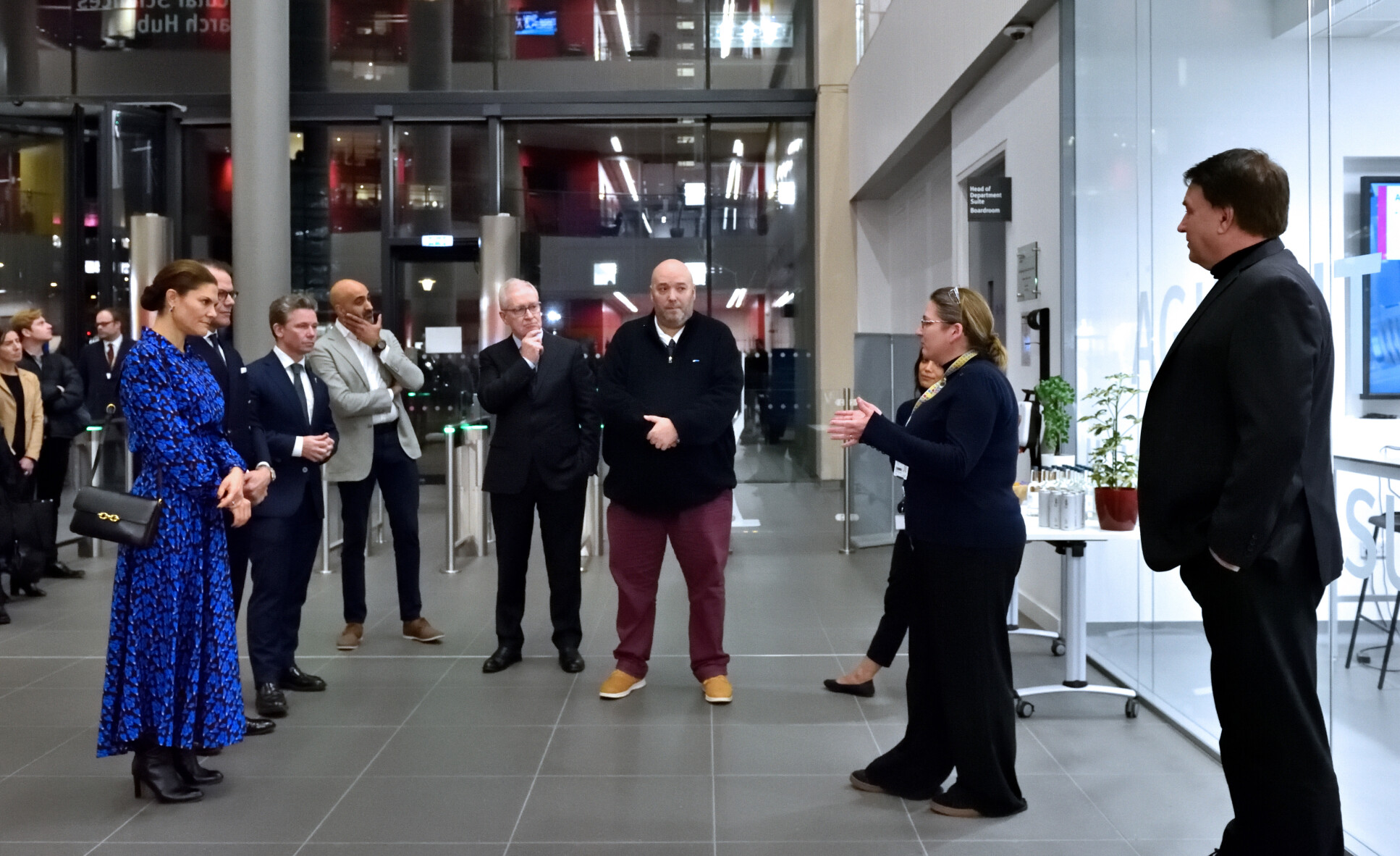[ad_1]
Crown Princess Victoria and Prince Daniel of Sweden visited Imperial’s White City Deep Tech Campus to see its cutting-edge research facilities.
The Crown Princess and Prince met with leaders and academics from Imperial to hear about the university’s ambitions for the innovative campus and visited chemistry laboratories to see how researchers are working on global challenges.

They were joined on the visit by a delegation from Sweden including Dr Pål Jonson, Sweden’s Minister for Defence, H.E. Stefan Gullgren, Sweden’s Ambassador to the UK, Håkan Jevrell, State Secretary to Minister for International Development Cooperation and Foreign Trade Johan Forssell, government officials and business leaders.
Crown Princess Victoria and Prince Daniel also visited the European Regional Office of NATO’s Defence Innovation Accelerator for the North Atlantic (DIANA), located at the Imperial College London Innovation Hub (I-HUB) in the White City Innovation District. The NATO innovation headquarters has been located at Imperial’s White City Campus through the research, development and innovation activities of Imperial’s Institute for Security Science and Technology (ISST).
The Crown Princess and Prince were making an official visit to the UK to strengthen and promote the longstanding and excellent relations between Sweden and the UK. The aim of their UK visit was to highlight enhanced cooperation in the areas of security and defence, the green transition, innovation and research, and increased exchanges within the business sector – all included in the recently signed Swedish-British strategic partnership.
Innovative research at White City

Imperial’s President Hugh Brady spoke to the delegation about Imperial’s interdisciplinary approach to research and teaching and highlighted the Molecular Sciences Research Hub’s combination of engineering and chemistry, Imperial’s work in medtech at the Sir Michael Uren Hub, and activity in cleantech.
President Brady explained the importance of incubators like Scale Space, which helps to scale up small startups and allows them to scale by themselves, rather than being sold to bigger companies. He also pointed out that the White City Campus is the anchor of a much bigger regeneration project and innovation ecosystem, with the Campus starting to serve as a magnet for other innovators and organisations.
Imperial’s White City Deep Tech Campus is home to major clusters of AI and security science, life sciences, medtech, climate and cleantech, and the next phase of development will see further expansion in mathematics, computer science and business.
Imperial has many links with Sweden, and collaborates closely with Karolinska Institutet, Lund University, Uppsala University, University of Gothenburg, Umeå University and many other institutes in Sweden.
President Brady said that now the UK is associated to the research funding programme Horizon Europe, Imperial hopes to collaborate more with Sweden and other European partners. Imperial has 13 Horizon Europe projects with partners in Sweden, in areas such as; cancer research, public health, health technology, green transition and circular economy.
Addressing societal challenges
NATO’s DIANA works with leading innovators – from early-stage start-ups to more mature companies – to accelerate, test, evaluate and validate new dual-use technologies that address both societal challenges and critical national security issues.
Professor Deeph Chana, Managing Director of DIANA said the White City Campus is ideal because of the burgeoning local innovation ecosystem. He explained that there is already a critical mass of talent, innovative companies, government organisations and funders that creates the perfect conditions for attracting and accelerating dual-use technology innovators.

The delegation also visited the Molecular Sciences Research Hub (MSRH) which is the home of Imperial’s Department of Chemistry.
The Agilent Measurement Suite (AMS) houses state-of-the-art equipment for scientists to apply the latest measurement technologies to their research.
The delegation met with Professor Oscar Ces, Head of the Department of Chemistry at Imperial, Professor Nicholas Harrison, Dr Sarah Al-Beidh and Dr Lisa Haigh from the Department of Chemistry at Imperial.
The team explained that the equipment there is used for chemical analysis of often complex samples, such as blood, wastewater, or industrial process streams, an essential element in disease diagnosis, environmental protection and process efficiency respectively.
[ad_2]
Source link
